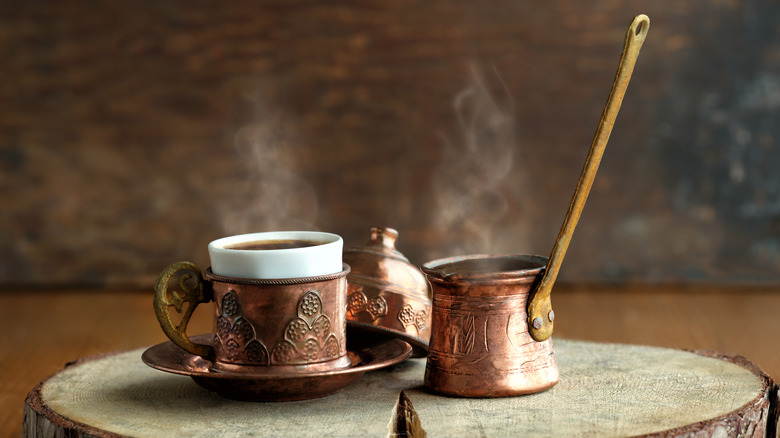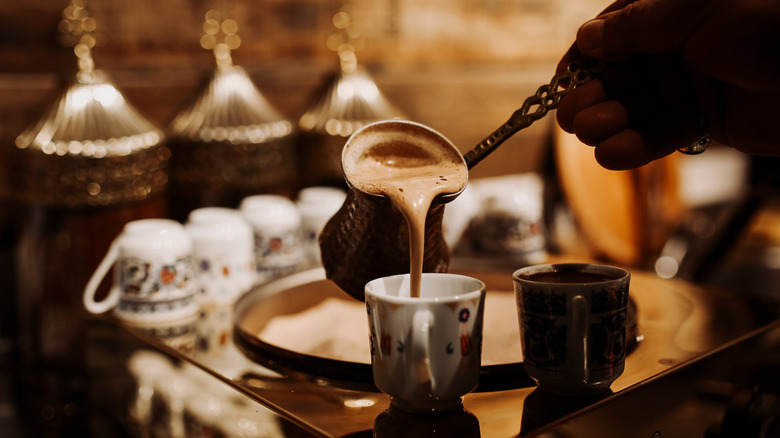The Only Way You Should Be Adding Sugar To Turkish Coffee
Turkish coffee is something everyone should experience at least once in their lives. It is traditionally made using finely ground beans and brewed in a specially-made copper pot called a cezve and tends to be foamy, thick, and powerfully aromatic (via Science Direct). A Whole Latte Love tells us that the Turks have indulged in warm, bubbling cups of coffee since 1540 when Ozdemir Pasha, a Turkish Governor, brought the drink to the reigning Sultan, where it got the royal stamp of approval. After that, coffee houses were opened nationwide, and scholars and students flocked to them for the stimulating brew.
But what exactly makes Turkish coffee so special besides its historical and cultural significance? According to Death Wish Coffee, authentic Turkish coffee is made in a particular way using sand. Yep, you read that right — sand is heated over a fire, and the cezve is filled with water and coffee and boiled atop the sand. The sand allows the heat to be conducted evenly, and the coffee becomes foamy as the grounds quickly infuse the water, and the deeper the pot is, the more heat it receives. But because of how Turkish coffee is made, it can be pretty intense for some drinkers, so sugar is added upon request, though not necessarily when you think it would be.
What's up with sugar
Because the fine coffee grounds are brewed directly in the water and not filtered, some make their way into your cup, making a tangibly thicker and stronger coffee that isn't for everyone (via Coffee-Direct). Coffee is not a one-size-fits-all drink, and the coffee brewers in Turkey are well aware that some of their customers need a sweet kick to make it palatable. But unlike in U.S. diners, where coffee drinkers are handed a pre-made cup of Joe and expected to add their sugar after brewing, in Turkey, the sugar is added to the grounds during the brew.
According to the Art of Turkish Coffee, when making Turkish coffee (or tea, for that matter), sugar must be added to the coffee before, not after, it's prepared. Why? Well, for one, it infuses the sweetness directly into the drink with any spices like cardamom; for another, if you add sugar to a Turkish coffee after it is made, you won't be able to stir it in. Remember, Turkish coffee is unfiltered, meaning the "sediment" is meant to lay undisturbed at the bottom of the cup. But if you stir sugar into your drink, you'll disperse it, ruining the experience. Instead of adding sugar after the fact, Aegean Delight advises telling your Turkish coffee maker that you want: "no sugar" or sade, "a little sugar" or az, "more sugar" or orta, or "a lot of sugar," şekerli.

